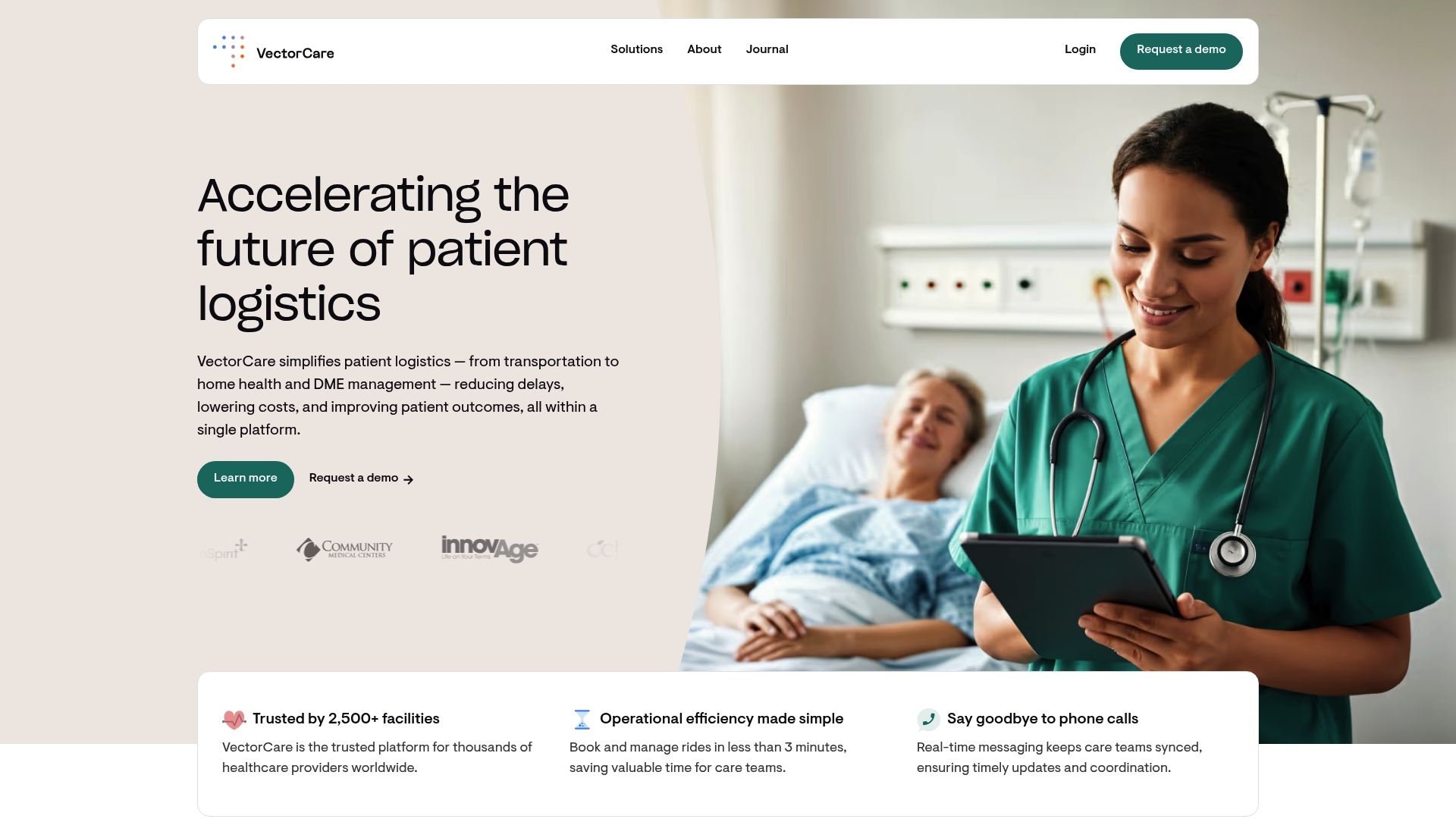Understanding Vendor Management Challenges in Healthcare

Healthcare organizations rely on outside vendors for everything from medical equipment to support services. Managing these partnerships sounds simple at first but the reality is anything but straightforward. Vendor management challenges impact everything from patient care to compliance and operations which means even a single oversight can come with serious consequences. The real surprise is that these hurdles are not just financial or logistical. They reach deep into regulatory risks and patient safety in ways most people never imagine.
Table of Contents
- What Are Vendor Management Challenges In Healthcare?
- Why Vendor Management Is Crucial For Healthcare Providers
- How Vendor Management Challenges Affect Healthcare Operations
- Key Concepts In Effective Vendor Management Strategies
Quick Summary
| Takeaway | Explanation |
|---|---|
| Effective vendor management mitigates risks | Comprehensive background checks and audits protect from legal and operational challenges. |
| Cost-effective vendor selection enhances efficiency | Careful vendor evaluations can reduce procurement costs and improve resource availability. |
| Regulatory compliance is essential for partnerships | Ensuring vendors adhere to regulations safeguards patient care and prevents legal issues. |
| Communication fosters successful vendor relationships | Transparent communication enhances collaboration and aligns vendor services with organizational goals. |
| Continuous evaluation drives quality improvement | Regular assessments of vendor performance ensure operational standards are met and maintained. |
What are Vendor Management Challenges in Healthcare?
Healthcare vendor management represents a complex operational landscape where healthcare organizations must strategically navigate relationships with multiple external service providers, medical equipment manufacturers, technology vendors, and support service contractors. Vendor management challenges emerge from the intricate requirements of maintaining high-quality, compliant, and cost-effective partnerships that directly impact patient care and organizational efficiency.
To help clarify the distinct areas where vendor management challenges arise in healthcare, the following table summarizes major challenges and their key examples discussed in the article.
| Challenge Area | Key Examples |
|---|---|
| Financial Complexity | Unpredictable pricing, high procurement costs, budget constraints |
| Operational Complexity | Complex contracts, maintaining performance standards |
| Regulatory & Compliance | HIPAA adherence, device safety, conflict of interest management |
| Supply Chain Disruption | Backorders, limited vendor options, inventory issues |
| Performance Impact | Admin overhead, higher costs, reduced flexibility |
Financial and Operational Complexity
Healthcare vendor management involves significantly more than simple transactional interactions. Organizations must carefully evaluate vendors across multiple dimensions, including financial stability, technological capabilities, regulatory compliance, and service quality. Learn more about strategic vendor evaluation processes that help mitigate potential risks.
Key financial and operational challenges include:
- Unpredictable pricing structures from medical suppliers
- High costs associated with medical equipment and technology procurement
- Complex contract negotiations requiring extensive legal and technical expertise
- Maintaining vendor performance standards while managing budget constraints
Regulatory and Compliance Considerations
Healthcare vendors must adhere to stringent regulatory requirements, which creates significant management challenges. According to research from the National Center for Biotechnology Information, medical device procurement involves intricate relationships between manufacturers, physicians, and healthcare institutions that can introduce potential conflicts of interest.
Compliance challenges encompass:
- Ensuring vendor adherence to HIPAA regulations
- Verifying medical device safety and effectiveness
- Managing potential conflicts of interest in vendor relationships
- Maintaining comprehensive documentation for regulatory audits
Healthcare organizations must develop robust vendor management strategies that balance operational efficiency, financial prudence, and unwavering commitment to patient safety and quality care.
Why Vendor Management is Crucial for Healthcare Providers
Healthcare providers operate in an increasingly complex ecosystem where strategic vendor management has become a critical component of organizational success. Effective vendor management transcends traditional procurement practices, serving as a comprehensive approach to building, maintaining, and optimizing external partnerships that directly influence patient care quality, operational efficiency, and financial performance.
Risk Mitigation and Compliance
Vendor management plays a pivotal role in protecting healthcare organizations from potential legal, financial, and operational risks. Discover strategies for transforming vendor risks into reliable operational frameworks. According to research from the Massachusetts Medicaid agency, implementing a quality-driven approach to vendor management can lead to significant improvements in organizational responsiveness and care outcomes.
Key risk mitigation considerations include:
- Comprehensive vendor background and credentials verification
- Regular performance audits and compliance assessments
- Establishing clear contractual expectations and accountability mechanisms
- Developing robust contingency plans for potential vendor disruptions
Strategic Operational Optimization
Beyond risk management, vendor relationships represent strategic opportunities for healthcare providers to enhance operational capabilities. By carefully selecting and managing vendors, organizations can access cutting-edge technologies, specialized expertise, and innovative solutions that might be challenging to develop internally.
Strategic optimization areas involve:
- Leveraging vendor technological capabilities
- Negotiating cost-effective service agreements
- Implementing collaborative improvement initiatives
- Aligning vendor services with organizational strategic goals
Healthcare providers must view vendor management as a dynamic, collaborative process that requires continuous engagement, mutual understanding, and a commitment to shared success. The most effective vendor relationships are those that view partnerships as strategic alliances rather than transactional interactions.
How Vendor Management Challenges Affect Healthcare Operations
Healthcare operations represent a complex interconnected system where vendor management challenges can significantly disrupt organizational efficiency, patient care quality, and financial performance. Vendor management challenges create cascading effects that penetrate multiple layers of healthcare service delivery, potentially compromising critical operational functions and patient outcomes.

Supply Chain and Resource Disruption
Explore comprehensive credentialing strategies that help mitigate operational risks. According to research from the U.S. Government Accountability Office, healthcare organizations frequently encounter significant supply chain disruptions that directly impact patient care and operational continuity.
Key supply chain vulnerabilities include:
- Frequent medical supply backorders
- Unpredictable inventory management challenges
- Limited alternative vendor options
- Extended procurement process timelines
Financial and Operational Performance Impact
Vendor management challenges extend beyond immediate resource procurement, creating substantial financial and operational performance implications. Ineffective vendor relationships can lead to increased operational costs, reduced service quality, and potential compliance risks that undermine organizational strategic objectives.
Operational performance challenges encompass:
- Increased administrative overhead
- Higher transaction and management costs
- Reduced operational flexibility
- Potential service delivery interruptions
Healthcare organizations must develop sophisticated, proactive vendor management strategies that anticipate potential challenges, establish robust communication frameworks, and create adaptive mechanisms to maintain operational resilience in an increasingly complex healthcare ecosystem.
Key Concepts in Effective Vendor Management Strategies
Healthcare organizations require sophisticated vendor management strategies that transcend traditional procurement approaches. Effective vendor management represents a holistic framework for building, maintaining, and optimizing external partnerships that align with organizational goals, regulatory requirements, and quality standards.
Below is a comparison table outlining the differences and relationships between the two core vendor management strategy concepts detailed in this guide: Strategic Partnership Development versus Quality and Compliance Management.
| Concept | Focus Area | Key Principles |
|---|---|---|
| Strategic Partnership Development | Building collaborative, long-term relationships | Clear expectations, mutual benefit, communication, continuous evaluation |
| Quality & Compliance Management | Ensuring standards and regulatory adherence | Performance metrics, audits, accountability, continuous improvement |
Strategic Partnership Development
Learn about advanced credentialing techniques that support robust vendor relationships. According to research from the Massachusetts Medicaid agency, developing a quality-driven approach involves comprehensive strategies that go beyond transactional interactions.
Key strategic partnership principles include:
- Establishing clear performance expectations
- Creating mutually beneficial collaboration frameworks
- Developing transparent communication channels
- Implementing continuous performance evaluation mechanisms
Quality and Compliance Management
Vendor management strategies must prioritize quality assurance and regulatory compliance as fundamental components of external relationships. Healthcare organizations need comprehensive approaches that ensure vendors meet rigorous standards while maintaining operational efficiency.

Critical quality management considerations involve:
- Defining precise performance metrics
- Conducting regular compliance audits
- Establishing accountability mechanisms
- Implementing continuous improvement protocols
Healthcare providers must view vendor management as a dynamic, strategic process that requires ongoing engagement, mutual understanding, and a commitment to shared organizational objectives. Successful strategies transform vendor relationships from transactional interactions into collaborative partnerships that drive operational excellence and enhance patient care quality.
Transform Vendor Management Challenges into Operational Strength
Struggling with vendor management complexity in healthcare can feel overwhelming. If you are facing unpredictable vendor pricing, compliance headaches, or constant supply chain disruptions, you are not alone. Your organization needs a solution that brings automation, secure communication, and real-time updates to every step of your vendor and patient logistics workflow. VectorCare addresses your top pain points with an integrated digital platform built to optimize scheduling, streamline credentialing, and ensure regulatory compliance while driving down operational costs and improving patient outcomes.

Start overcoming these challenges today. Discover how VectorCare’s platform can help your team gain control over complex vendor relationships, eliminate delays, and enhance coordination with actionable insights. Visit our website to experience the difference and request your personalized demo now. Take the first step toward transforming your vendor management strategy and building a more resilient healthcare operation.
Frequently Asked Questions
What are the main challenges in vendor management for healthcare organizations?
Healthcare organizations face challenges such as unpredictable pricing structures, high procurement costs, complex contract negotiations, and maintaining vendor performance standards under budget constraints.
How do compliance regulations affect vendor management in healthcare?
Compliance regulations require healthcare vendors to adhere to HIPAA rules, verify medical device safety, and manage potential conflicts of interest, creating significant complexities in vendor relationships.
Why is strategic vendor management important for healthcare providers?
Strategic vendor management is crucial as it helps mitigate risks, optimize operational capabilities, and ensures that healthcare organizations can access cutting-edge technologies and expertise necessary for quality patient care.
What impact do vendor management challenges have on healthcare operations?
Vendor management challenges can disrupt supply chains, lead to increased operational costs, and reduce service quality, ultimately affecting patient care and overall financial performance.



